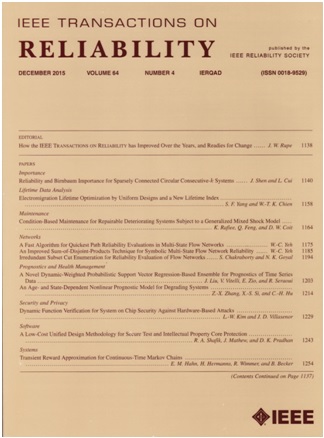FPGA高级合成工具中bug的见解:Bambu bug的实证研究
IF 5.7
2区 计算机科学
Q1 COMPUTER SCIENCE, HARDWARE & ARCHITECTURE
引用次数: 0
摘要
高级综合(High-level synthesis, HLS)工具广泛应用于现场可编程门阵列(FPGA)设计中,用于将C/ c++代码转换为硬件描述语言代码。不幸的是,HLS工具容易受到错误的影响,这可能会在FPGA产品中引入严重的漏洞,导致巨大的损失。然而,这些bug的特征(例如,根本原因和bug易发阶段)从未被系统地研究过,这极大地阻碍了开发人员有效地处理HLS工具bug。为此,我们进行了首次实证研究,揭示了HLS工具的bug特征。我们收集了一个被广泛使用的HLS工具Bambu的349个bug。我们通过应用多人协作方法研究这些错误的根源、错误阶段和错误修复。最后,总结了13个有价值的发现。我们在Bambu bug中发现了14类根本原因;大多数错误(22.1%)是由于不正确地实现IR处理引起的;Bambu的前端更容易出现bug;为了修复这些bug,平均需要修改2.27个文件和80.19行代码。我们还介绍了从95个Vitis HLS漏洞中获得的见解。根据这些发现,我们建议开发人员可以使用动态代码生成器配置方法来生成适合HLS工具错误检测的测试程序,并应用大型语言模型来帮助修复HLS工具错误。本文章由计算机程序翻译,如有差异,请以英文原文为准。
Insights From Bugs in FPGA High-Level Synthesis Tools: An Empirical Study of Bambu Bugs
High-level synthesis (HLS) tools have been widely used in field-programmable gate array (FPGA) design to convert C/C++ code to hardware description language code. Unfortunately, HLS tools are susceptible to bugs, which can introduce serious vulnerabilities in FPGA products, leading to substantial losses. However, the characteristics of these bugs (e.g., root causes and bug-prone stages) have never been systematically studied, which significantly hinders developers from effectively handling HLS tool bugs. To this end, we conduct the first empirical study to uncover HLS tool bug characteristics. We collect 349 bugs of a widely used HLS tool, namely Bambu. We study the root causes, buggy stages, and bug fixes of these bugs by applying a multiperson collaboration method. Finally, 13 valuable findings are summarized. We find 14 categories of root causes in Bambu bugs; most bugs (22.1%) are caused by incorrect implementation of IR processing; the front end of Bambu is more bug-prone; to fix these bugs, 2.27 files and 80.19 lines of code need to be modified on average. We also present the insights gained from 95 Vitis HLS bugs. From these findings, we suggest that developers could use an on-the-fly code generator configuration method to generate suitable testing programs for HLS tool bug detection and apply large language models to assist in fixing HLS tool bugs.
求助全文
通过发布文献求助,成功后即可免费获取论文全文。
去求助
来源期刊

IEEE Transactions on Reliability
工程技术-工程:电子与电气
CiteScore
12.20
自引率
8.50%
发文量
153
审稿时长
7.5 months
期刊介绍:
IEEE Transactions on Reliability is a refereed journal for the reliability and allied disciplines including, but not limited to, maintainability, physics of failure, life testing, prognostics, design and manufacture for reliability, reliability for systems of systems, network availability, mission success, warranty, safety, and various measures of effectiveness. Topics eligible for publication range from hardware to software, from materials to systems, from consumer and industrial devices to manufacturing plants, from individual items to networks, from techniques for making things better to ways of predicting and measuring behavior in the field. As an engineering subject that supports new and existing technologies, we constantly expand into new areas of the assurance sciences.
 求助内容:
求助内容: 应助结果提醒方式:
应助结果提醒方式:


